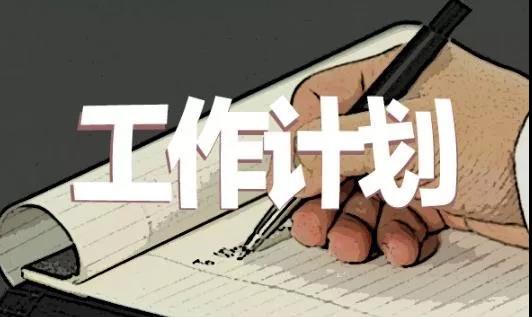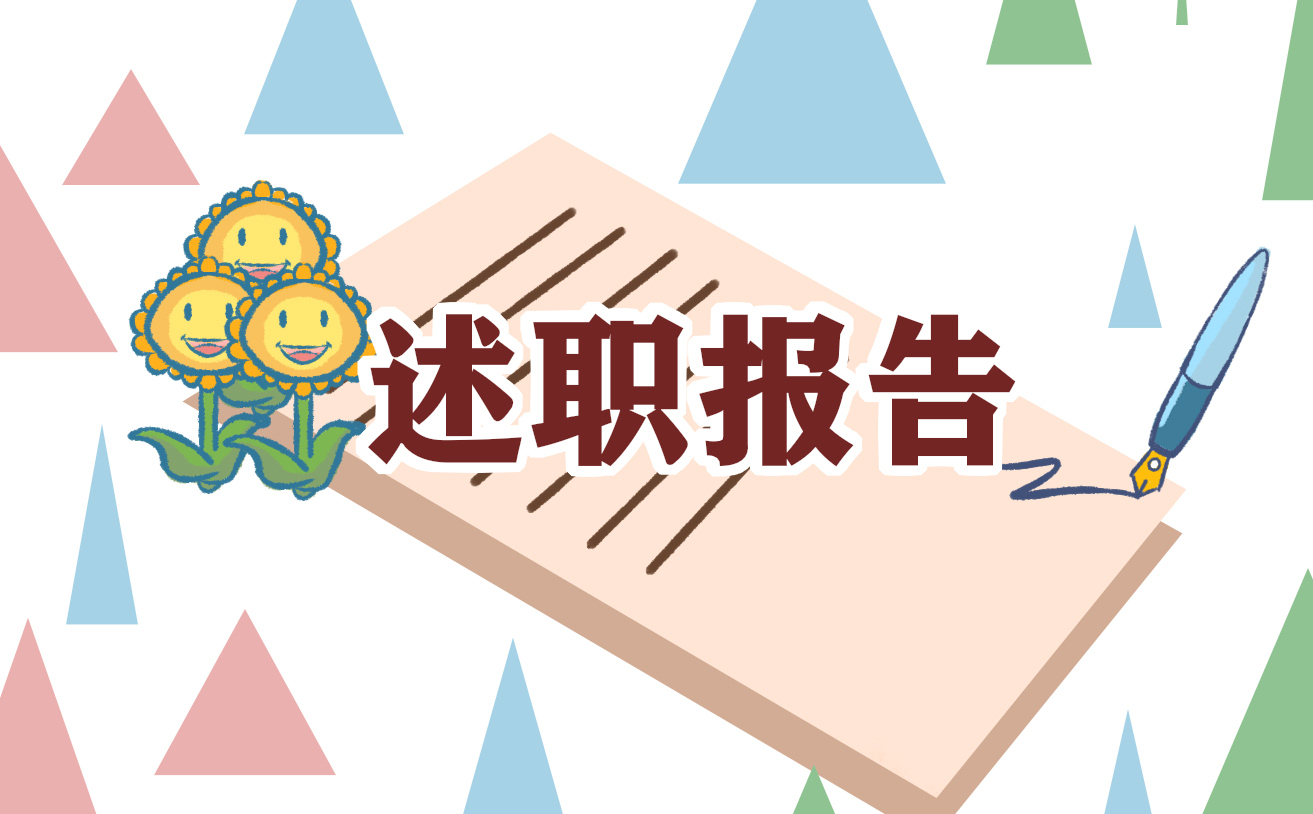英语语法知识归纳第1篇一、形容词性物主代词1、形容词性物主代词8个:Myyourhisheritsouryourtheir我的你的他的她的它的我们的你们的他(她、它)们的2、形容词性物主代词的特点:1下面是小编为大家整理的英语语法知识归纳必备8篇,供大家参考。

英语语法知识归纳 第1篇
一、形容词性物主代词
1、形容词性物主代词8个:
My your his her its our your their
我的你的他的她的它的我们的你们的他(她、它)们的
2、形容词性物主代词的特点:
1)译成汉语都有"的" eg:my 我的 their 他们的
2)后面加名词:eg:my backpack his name
3)前后不用冠词 a an the
This is a my eraser(错误)
That is your a pen(错误)
It"s his the pen(错误)
3、I(物主代词)my you(物主代词)your he (物主代词)her we (物主代词) our
注:在变物主代词时,把原题所给的词加上的,再译成单词就可以了。
英语语法知识归纳 第2篇
名词的所有格:表所有关系
两种表示法:’s和of
1)用and连接两个并列的单数名词表示共有关系时,只在最后一个名词后加’s;表示分别拥有各自的物品时,两个名词都要加’
eg: Mary and her sister’s bedroom 玛丽和她妹妹的房间 Tom’s and Mary’s bags 汤姆的和玛丽的包
2)以s结尾的名词,在s后加’, 不以s结尾的加’s
eg: Teachers’ Day Children’s Day
3)双重所有格,形式:of+名词所有格;of+名词性物主代词
eg:He is a friend of my brother’ Is she a daughter of yours ?
辨析:
a picture of her mother’s 她妈妈的一张照片(强调照片是她妈妈的,但照片上的人不一定是她妈妈)
a picture of her mother 她妈妈的照片(强调照片上的人是她妈妈) 4)表示店铺、医院、诊所、住宅等名称时,常用名词后加上’s代表全称 at the doctor’s 在医院的候诊室
5)在some, any, every和one, boby结合起来的复合名词后加’s
someone’s book 某人的书, somebody else’s pencil 其他人的铅笔
6)表示时间,距离,国家,城市等无生命的名词,也可以在词尾加’s或’构成所有格。
意:名词+of+名词名词是有生命的,我们就用’s结构来表示所有关系。如果名词所表示的事物是无生命的,我们就要用名词+of+名词的结构来表示所有关系.如: the legs of the desk,the door of the room
但在表示名词所有格时,’s结构也常可转换成of结构。有些表示时间,距离、国家、城市等无生命的东西的名词,也可以加’s来构成所有格.如: ten minutes" walk,today"s newspaper
英语语法知识归纳 第3篇
一、陈述句
陈述句是陈述一个事实或者说话人的看法的,陈述句分为肯定句和否定句。陈述句句末用句号,朗读时用降调。
1、肯定句的基本结构为:主+谓 He went to London to pass his
2、否定句的表达方式
(1)主语+be+not+表语 He is not a
(2)主语+助动词/情态动词+not+谓语动词+其他 I don"t think you are He hasn"t yet paid the (他尚未付钱。)
(3)使用“not”以外的否定词:
(a)副词:never, seldom, hardly, little, neither等。She seldom comes to see (她不常来看我。)
(b)形容词:no, few, little等 He has few friends in Hong (他在香港几乎没有朋友。)
(c)代词:nothing, nobody, none等。I found nobody about (在那栋房子里我没看到任何人。)
二、疑问句
疑问句的主要交际功能是提出问题,询问情况。分为一般疑问句、选择疑问句、特殊疑问句和反意疑问句。
1、一般疑问句通常用来询问一件事情是否属实。答句通常是“yes或no”。
句型一:Be +主语+ …?Are these books on the desk?这些书在桌子上吗?
句型二:Do / Does / Did + 主语 +谓语+…?Do you like English?你喜欢英语吗? 句型三:情态动词 + 主语 + 谓语 +…?
Must I finish my homework now?我必须现在完成我的家庭作业吗?
句型四:Have / Has + 主语 + 过去分词+…?
Have you heard from him? 你收到他的来信吗?
另外,还有以be动词、助动词或情态动词的否定缩写形式开头的一般疑问句,这种句子一般表示请求、惊讶和对事物的看法等,回答时所用的yes和no表达的意思和汉语的习惯不同。例如:——Isn"t he tall?难道他不高吗?
—— Yes, he 不,他很高。
2、特殊疑问句以疑问词开头,对句中某一成分提问的句子叫特殊疑问句。常用的疑问词有:what 、who 、whose 、which、 when、 where、 how 、why等。例如:
who is singing in the room?
what class are you in﹖
英语语法知识归纳 第4篇
1、 as…as…结构:你和汤姆是一样好的孩子。
You’re a boy as good as ’re as good a boy as
2、 (1)too…to与 so…that can’t…的句型转换:前者为简单句,主语只有一个,而后者为复合句,主语有两个,试比较:
The man was too angry to be able to
The man was so angry that he wasn’t able to
(2) too…to…与 not enough to句型的转换:
He is too young to get is not old enough to get
The book is too difficult for me to
The book is not easy enough for me to
3、 形容词原级表示比较级含义:
约翰不象迈克那么苯。
John is not so stupid as
John is less stupid than
John is cleverer than
4、 用比较级表示最高级:约翰是班里最高的男生。
John is taller than any other boy in the
John is the tallest boy in the
5、 the more… the more….表示“越……越……”:
The more books you read, the wider your knowledge
The more food you eat, the fatter you
6、 more and more….表示“越来……越……”:
More and more students realized the importance of a foreign
Our country is getting stronger and
20XX中考考点—词组
after, in 这两个介词都可以表示“……(时间)以后”的意思
after 以过去为起点,表示过去一段时间之后,常用于过去时态的句子中?
如:She went after three 她是三天以后走的
in 以现在为起点,表将来一段时间以后,常用于将来时态的句子中
如:She will go in three 她三天以后要走
how long, how often, how soon
how long指多长时间,主要用来对一段时间(如three days, four weeks 等)提问?如:How long ago was it? 这是多久前的事了?
how often指每隔多久,主要用来对频率副词或状语(如once a week等)提问?如:—How often does he come here? —Once a 他(每隔)多久来一次?每月一次。
how soon指再过多久,主要用来对表示将来的一段时间(in an hour, in two weeks 等)提问?如:How soon can you come? 你多快能赶来?
few, a few, little, a little, several, some
few 和little的意思是否定的,表示“很少”或“几乎没有”;而a few和a little的意思是肯定的,表示“有一些,有一点儿”
few 和 a few修饰可数名词;little 和 a little 修饰不可数名词
several用于修饰可数名词,语意比a few和some更肯定,含有“好几个”的意思
some可修饰可数名词,也可修饰不可数名词,从数量上说,它有时相当于a few 或 a little,有时指更多一些的数量
the other, another
the other 指两个人或事物中的“另一个”,表示特指?如:We stood on one side of the road and they stood on the 我们站在街这边,他们站在那边
another着重于不定数目中的“另外一个”,表示泛指,所以常用来指至少三个中的一个?如:She has taken another of my 她已经拿了我的另外一本书
spend, take, cost, pay
spend的宾语通常是时间?金钱?在主动语态中,句子的主语必须是人,而且后面不能用动词不定式做它的宾语?如:She spent the whole evening in 她把整个晚上用来读书
take常常用来指“花费”时间,句子的主语通常是表示事物的词语?如:How long will this job take you?你做这项工作要花多长时间?
cost 指花费时间?金钱或力气等,只能用表示事物的词做主语,并且不能用于被动语态?如:How much does the jacket cost?这件夹克多少钱?
pay 主要指主语(某人)买某物(或为某事)付多少钱(给某人)?如:I pay for my rooms by 我按月支付租金
among, between
between 的意思是“在……中间,在……之间”,一般指在两者之间?如:There is a table between two 在两扇窗户之间有一张桌子。between 有时也表示在多于两个以上的事物之间,但那是指在每二者之间。如:the relationship between different provinces and municiplities 省市和省市之间的关系(这里是指每两个省市之间的相互关系?)
beat, win
这两个词都有“获胜,打败”的意思,但其后宾语不同?beat是“打败,优于”的意思,后面接人或队?如:We beat 我们打败了他们。
win指“赢,获胜”,后面接比赛?名次?如:We won the match/game/race/the first 我们赢了这场比赛(获得了第一名)。
agree with, agree on, agree to
agree on表示“就……取得一致意见”?如:We all agree on (making) an early 我们一致同意及早出发?
agree with表示“与……意见一致”,后面既可以跟表示人的名词或人称代词,也可以跟表示意见。看法的名词或what引导的从句?。如:I agree with you without 我毫无保留地同意你的意见。We agree with what you said just 我们同意你刚才所说的意见。
agree to后面不能接人,只能接“提议,计划,方案”等词句?如:I agree to the terms 我同意拟议的条件。
bring, take, carry,fetch
这四个词都是动词,都含有“带”或“拿”的意思,但使用的场合各不相同。
bring作“带来,拿来”解?如:Next time don’t forget to bring me a copy of your 下次不要忘了把一份你的作品带给我。
take是bring的对语,作“带去,拿去”解?如:Take the box away, 请把盒子拿走。
carry表示“运载,携带”之意,运送的方式很多,可以用车、船,也可以用手甚至用头。如:This bus is licensed to carry 100 这辆巴士准载一百人。
fetch则表示“去拿来”的意思。如:Please fetch me the documents in that 请到那间房间去把文件拿来给我。
each, every
两词都是“每个”的意思,但着重点不同。each着重个别的情况,every着重全体,有“所有的”的意思。如:She knows each student of the 她认识这个班里的每一个学生。She knows every student of the 她认识这个班所有的学生。
no one, none
no one指“没有人(只能指人,不能用来指物)”,意思与nobody相同,作主语时不必跟of连用,如:No one believes him since he is not 没有人相信他,因为他不诚实。No one else but I 除我以外,谁也没去。
none指“一个也没有(既可指人,也可指物)”,作主语时代替不可数名词,谓语动词用单数形式;代替可数名词,谓语动词用单、复数都可以。但在“主+系+表”结构中,如果表语为复数,则系动词要用复数形式。如:None of us are(is) afraid of 我们谁也不怕困难。
go on doing, go on to do, go on with
这三个动词短语都有“继续做某事”的意思,其区别如下:go on doing表示“继续做,一直在做某事(中间无间断)”;go on to do表示“接着做某事”,即某事已做完,接着做另一件事;go on with也表示“继续做某事”,其含义是某一动作一度中止后,又继续下去。
too much, much too
二者都有“太,非常”之意,much too为副词词组,修饰形容词?副词,不可修饰动词。如:It’s much too 天气实在是太冷了。
too much作“太多”讲,有以下三种用法?
(1)作名词词组 如:You have given us too 你给我们的太多了。
(2)作形容词词组修饰不可数名词 如:Don’t drink too
much 不要饮太多的酒
(3)作副词词组修饰不及物动词 如:She talks too 她说话太多
happen, take place与occur
happen有“偶然”的意思,多用于客观事物?情况的发生?。如:Whatever has happened to your arm? It’s all 你的手臂怎么了?肿得好历害!
occur 指有计划地使某些事“发生”,有时强调“呈现”于人的知觉中。如:Did it occur to you to phone them about it?你难道没想到就这事给他们打个电话?
事件作主语时,happen和occur可以通用?如:The accident happened/occurred 事故是昨天发生的。
take place 指事件发生,但常用来表示“举行”的意思,带有非偶然性?例如:The meeting took place last 会议昨晚举行。
in front of, in the front of
in front of的意思是“在……前面”。如:There is a tree in front of the 房子前面有一棵树。
in the front of的意思是“在……前部”,指在某个空间范围内的前面。如:There is a blackboard in the front of the 教室里前部有一块黑板
noise, voice, sound
这三个词都作“声音”解,在表示“听到声音”这个意思时,三者可以通用,但它们又各有特定的含义。
sound 作“声音”解,含义最广,指可以听到的任何声音,如:a weak sound 微弱的声
noise作“噪音,嘈杂声,吵闹声”解,指不悦耳,不和谐的声音,它既可作可数名词,也可作不可数名词。如:Another kind of pollution is 另外一种污染是噪音。
voice 作“声音”解时,多指人发出的声音,包括说话声、歌声和笑声。如:He shouted at the top of 他高声呼喊。有时也用于引申意义,作“意见、发言权”解。如:I have no voice in the 对于这件事,我没有发言权。
arrive, get, reach
三者均可表示“到达”,arrive后通常接介词at(一般用于较小的地方)或 in(一般用于较大的地方)?如:We arrived at the station five minutes 我们晚了5分钟到车站?又如:They will arrive in Paris next 他们将于下周星期一到达巴黎?
get之后通常接介词to。如:When we got to the park, it began to 我们到达公园时,就开始下雨了。
reach是及物动词(较 get更正式),其后可直接跟地点名词做宾语(不能用介词)。如:He reached Beijing 他昨天到达北京。
英语语法知识归纳 第5篇
clothes, cloth, clothing
clothes统指各种衣服,谓语动词永远是复数, cloth指布,为不可数名词 clothing 服装的总称,指一件衣服用a piece of, an article of
incident, accident
incident指小事件, accident指不幸的事故He was killed in the
amount, number
amount后接不可数名词, number后接可数名词 a number of students
family, house, home
home 家,包括住处和家人,house房子,住宅,family家庭成员. My family is a happy
sound, voice, noise
sound自然界各种各样的声音,voice人的嗓音,noise噪音I hate the loud noise
photo, picture, drawing
photo用照相机拍摄的照片,picture可指相片,图片,电影片,drawing画的画 Let"s go and see a good
vocabulary, word
vocabulary词汇,一个人拥有的单词量,word具体的单词He has a large
population, people
population人口,人数,people具体的人 China has a large
weather, climate
weather一天内具体的天气状况,climate长期的气候状况 The climate here is not good for
road, street, path, way
road具体的公路,马路,street街道,path小路,小径,way道路,途径
take this road; in the street, show me the way to the
course, subject
course课程(可包括多门科目),subject科目(具体的学科)a summer course
custom, habit
custom传统风俗,习俗,也可指生活习惯,后接to do, habit生活习惯,习惯成自然,后接of I"ve got the habit of drinking a
cause, reason
cause 指造成某一事实或现象的直接原因,后接of sth,reason用来解释某种现象或结果的理由,后接for the reason for being late
exercise, exercises, practice
exercise运动,锻炼(不可数),exercises练习(可数),practice(反复做的)练习 Practice makes
class, lesson
作"课"解时,两者可以替换.指课文用 指班级或全体学生用 lesson 6; class 5
speech, talk, lecture
speech指在公共场所所做的经过准备的较正式的演说,talk日常生活中的一般的谈话,讲话,lecture学术性的演讲,讲课 a series of lecture on…
officer, official
officer部队的军官,official政府官员 an army officer
work, job
二者均指工作。work不可数,job可数 a good job
couple, pair
couple主要指人或动物,pair多指由两部分组成的东西 a pair of trousers
country, nation, state, land
country侧重指版图,疆域,nation指人民,国民,民族,state侧重指政府,政体,land国土,国家 The whole nation was sad at the
cook, cooker
cook厨师,cooker厨具 He is a good
damage, damages
damage不可数名词, 损害,损失; damages复数形式, 赔偿金 $900 damages
police, policeman
police警察的总称,后接复数谓语动词,policeman 指某个具体的警察 The police are questioning everyone in the
problem, question
problem常和困难连系,前面的动词常为think about, solve, raise,question常和疑问连系,多和ask, answer连用
man, a man
man人类,a man一个男人 Man will conquer
chick, chicken
二者均可指小鸡,chicken还可以当鸡肉 The chicken is
telegram, telegraph
当电报解时,telegram指具体的,telegraph指抽象的 a telegram, by telegraph
trip, journey, travel, voyage
travel是最常用的,trip指短期的旅途,journey指稍长的旅途,voyage指海上航行 a three-day trip
sport, game
sport多指户外的游戏或娱乐活动,如打球,游泳,打猎,赛马等;game指决定胜负的游戏,通常有一套规则 His favorite sport is
price, prize
price价格,prize奖,奖品,奖金 win the first prize The price is
a number of, the number of
a number of许多,谓语动词用复数。the number of…的数目,谓语动词用单数。The number of students is
in front of, in the front of
in front of范围外的前面,in the front of范围内的前面 In the front of the room sits a
of the day, of a day
of the day每一天的,当时的,当代的, of a day暂时的,不长久的 a famous scientist of the day
three of us, the three of us
three of us我们(不止三个)中的三个,the three of us我们三个(就三个人)The three of us---Tom, Jack and I went to the
by bus, on the bus
by bus表手段,方式,不用冠词,on the bus表范围 They went there by
for a moment, for the moment
for a moment 片刻,一会儿,for the moment暂时,一时 Thinking for a moment, he
next year, the next year
next year将来时间状语,the next year过去将来时间状语 He said he would go abroad the next
more than a year, more than one year
more than a year一年多,more than one year超过一年(两年或三年等)
take advice, take the(one"s) advice
take advice征求意见,take the advice接受忠告 He refused to take the advice and failed
take air, take the air
take air传播,走漏,take the air到户外去,散步 We take the air every
in a word, in words
in a word总之,一句话, in words口头上 In a word, you are
in place of, in the place of
in place of代替,in the place of在…地方 A new building is built in the place of the old
in secret, in the secret
in secret秘密地,暗自地,偷偷地,一般用作状语;in the secret知道内情,知道秘密,一般用作表语 My mother was in the secret from the
a girl, one girl
a girl可泛指所有女孩, one girl一个女孩 Can one girl carry such a big box?
take a chair, take the chair
take a chair相当于sit down坐下,take the chair开始开会
go to sea, by sea, by the sea
go to sea当海员,出航,by sea乘船,由海路, by the sea在海边 go by sea
the doctor and teacher, the doctor and the teacher
the doctor and teacher指一个人,既是医生又是老师,the doctor and the teacher两个人,一个医生和一个老师 the doctor and teacher is
in office, in the office
in office在职的,in the office在办公室里 He is in office, not out of
in bed, on the bed
in bed卧在床上,on the bed在床上 The book is on the He is ill in
in charge of, in the charge of
in charge of管理,负责照料, in the charge of由……照料 He is in charge of the The matter is in the charge of
in class, in the class
in class在课上,in the class在班级里 He is the best student in the
on fire, on the fire
on fire着火,on the fire在火上 Put the food on the The house is on
out of question, out of the question
out of question毫无疑问的,out of the question不可能的
a second, the second
a second又一,再一,the second第…… He won the second
by day, by the day
by day白天,by the day按天计算 The workers are paid by the
the people, a people
the people指人,a people指民族 The Chinese is a peace-loving
it, one
it同一物体,one同类不同一 I lost my I have to buy a new
that, this
that指代上文所提到的,this导出下文所要说的 I was That"s why…
none, nothing, no one
none强调有多少,nothing, no one强调有没有,nothing指物,no one指人
--- How many…/How much…? ---
anyone, any one
anyone指人,不能接of,any one指人物均可,可接of any one of you
who, what
who指姓名或关系,what指职业或地位 What is your dad? He is a
what, which
what的选择基础是无限制的,which在一定范围内进行选择 Which do you prefer, bananas or apples?
other, another
other后接名词复数,another后接名词单数 other students, another student
not a little, not a bit
not a little非常,not a bit一点也不 I"m not a bit 我一点儿也不累。
many, much, a lot of
many和可数名词连用,much和不可数名词连用,a lot of可数,不可数均可,但不用于否定句 I haven"t many
much more…than, many more…than
much more…than后接形容词或不可数名词,many more…than后接可数名词 many more people, much more water, much more beautiful
no, not
no=not a/any no friend=not a/any friend no water=not any water
no more than, not more than
no more than相当于only,仅仅,只有,not more than 至多,不超过
majority, most
majority只能修饰可数名词,most可数不可数均可 the majority of people
by oneself, for oneself, to oneself, of oneself
by oneself单独的,独自的,for oneself为自己,to oneself供自己用的,of oneself 自行的,自动的 The door opened of
at all, after all
at all根本,全然, after all到底,毕竟 After all he is a
tall, high
tall常指人或动物,high常指物体 He is
fast, quickly
fast侧重于指人或物体具有运动速度快的特点,quickly侧重指某事完成或发生的快 run fast, answer the question quickly
high, highly
high具体的高,highly抽象的高,高度的 think highly of
healthy, healthful
healthy健康的,健壮的,healthful有益于健康的 healthful exercise
sleeping, asleep, sleepy
sleeping正在睡觉,asleep睡着,熟睡,只能做表语,sleepy困的,有睡意的 a sleeping baby The baby is I"m
gold, golden
gold指真金制品,golden指金色的,但金鱼用gold fish a gold ring
most, mostly
most用于表感受的肯定句中,相当于very,当大部分,大多数解时是形容词或名词,mostly大部分,是副词 most people, the people are mostly…
just, very
just表强调时是副词,作状语,very表强调时是形容词,用作定语 the very man, just the man
wide, broad
wide侧重于一边到另一边的距离,broad侧重于幅面的宽广broad shoulders
real, true
real真的,真实的,指的是事实上存在而不是想象的,true真的,真正的,指的是事实和实际情况相符合 real gold, a true story
respectful, respectable
respectful尊敬,有礼貌,respectable可敬的,值得尊敬的 be respectful to the aged
outwards, outward
二者均可用作副词,表示向外,外面,outward还可用作形容词 an outward voyage
pleasant, pleased, pleasing
pleasant常用作定语,pleased, pleasing常用作表语,pleased主语常为人,pleasing主语常为物 a pleasant trip The trip is
understanding, understandable
understanding明白事理的,能体谅的,understandable 可理解的,能够懂的 an understanding girl, an understandable mistake
close, closely
close接近,靠近,closely紧紧地,紧密地 closely connected, stand close
ill, sick
ill做表语,sick定,表均可 a sick boy
good, well
good形容词,well副词,但指身体状况是形容词 He is well
quiet, silent, still
quiet安静的,可以发出小的声音,silent不发出声音,但可以动,still完全不动,完全无声响 He stand there 他站在那儿,一动不动,也不说话。
hard, hardly
hard努力,hardly几乎不 work hard I can hardly believe
able, capable
able与不定式to do连用,capable与of连用 He is capable of doing…
almost, nearly
二者均为"几乎,差不多" 和否定词连用用almost almost nobody
late, lately
late迟,晚,lately最近,近来 I haven"t seen him
living, alive, live, lively
living, alive, live均为活着的,living定表均可,alive定表均可,定语后置,live只能做定语,lively意为活波的 all the living people=all the people alive
excited, exciting
excited使人兴奋的,exciting令人兴奋的 I"m The news is
deep, deeply
deep具体的深,deeply抽象的深,深深地 deeply moved, dig deep
aloud, loud
aloud出声地,loud大声地 read aloud(出声地读)
worth, worthy
二者均为值得,worth后接doing,worthy后接to be done, of being done
It is worth = It"s worthy to be = It"s worthy of being
bad, badly
bad形容词,badly副词,不好,但与need, want, require连用为"很,非常" go bad I need the book
before long, long before
before long不久以后,long before很久以前 not long before = before long
quite, rather
quite完全地,相当于completely, rather修饰比较级 quite impossible
happy, glad
happy高兴,幸福,定表均可,glad高兴,只能做表语 a happy girl
instead, instead of
instead是副词,放在句首或句末,instead of是介词短语,放在句中He didn"t see a Instead he watched He watched TV instead of seeing a
too much, much too
too much 后接不可数名词,much too后接形容词 much too heavy
be about to, be going to, be to do
be about to表最近的将来,后面不接时间状语,be going to 侧重打算,想法,be to do侧重意志,计划,安排I"m to meet (含双方事先约好的意思)
raise, rise
raise及物动词,rise不及物动词 The sun rises in the
bring, take, carry, fetch
bring拿来,take带走,carry随身携带,fetch去回这一往返动作 fetch a box of chalk
spend, take, pay, cost
spend人做主语,花钱,花时间; spend…on doing sth; take物做主语,花时间; pay人做主语,花钱,pay for; cost物做主语,花钱
英语语法知识归纳 第6篇
1、be late for„. „„迟到
Don’t be late for 不要上学迟到。
2、play + 球类名词:打/踢„„球(注意:球类运动不用冠词)
play +the+ 乐器(西洋)
playping-pong/basketball/volleyball/tennis/soccer
3、sound
1)连系动词,“听起来”,后接形容词作表语。
That story sounds very 那故事听起来很有趣。
2)名词“声音”(泛指自然界中的各种声音)。
The sound is too 声音太大了。
4、every day 每天
She plays sports every 她每天都做运动。
everyday日常的 everyday English 日常英语
class 下课后 after school 放学后
辨析interesting与interested
1) interesting可作表语,指某人/事/物本身有趣;也可作定语修饰人或物
① The book is 这书很有趣。
(作表语)
②I have an 我有本有趣的书。(作定语)
2) interested用于be/get/become interested in„(对„„感兴趣)这一结构中。
He is interested inplaying 他对踢足球感兴趣。
7、like 喜欢
1)like / 喜欢某人/某物
2) like to do 喜欢/想要做某事(表一次性或特指的某一具体的动作)
3) like doing sth喜欢做某事(表习惯性的动作或爱好)
①我喜欢每天打篮球。I like playing basketballevery
②今天很冷,我喜欢呆在家里。Todayis cold, I like to stay at
英语语法知识归纳 第7篇
一.动词be(is,am,are)的用法
我(I)用am, 你(you)用are,is跟着他(he),她(she),它(it)。单数名词用is,复数名词全用are。变否定,更容易,be后not加上去。变疑问,往前提,句末问号莫丢弃。还有一条须注意,句首大写莫忘记。
二.this,that和it用法
(1)this和that是指示代词,it是人称代词。
(2)距离说话人近的人或物用this, 距离说话人远的人或物用that。如:
This is a 这是一朵花。(近处)
That is a 那是一棵树。(远处)
(3)放在一起的两样东西,先说this, 后说that。如:
This is a That is a 这是一支钢笔。那是一支铅笔。
(4)向别人介绍某人时说This is…, 不说That is…。如:
This is Helen, this is 这是海伦,海伦,这是汤姆。
(5)This is 不能缩写, 而That is可以缩写。如:
This is a That’s a 这是一辆自行车。那是一辆轿车。
(6)打电话时,介绍自己用this, 询问对方用that。如:
—Hello! Is that Miss Green? 喂,是格林小姐吗?
—Yes, this Who’s that? 是的,我是,你是谁?
注意:虽然汉语中使用“我”和“你”,但英语中打电话时绝不可以说:I am…, Are you…?/Who are you?
(7)在回答this或that作主语的疑问句时, 要用it代替this或that。如:
①—Is this a notebook? 这是笔记本吗?
—Yes, it 是的,它是。
②—What’s that? 那是什么?
—It’s a 是只风筝。
英语语法知识归纳 第8篇
What用途广,要问“什么”它当先。(What’s this?)
How开头来“问安”。(How are you?)
Who问“谁”。(Who’s that man?)
“谁的”Whose来承担。(Whose eraser is this?)
询问“某地”用Where。(Where is her cat?)
“哪一个”Which句首站。(Which one?)



